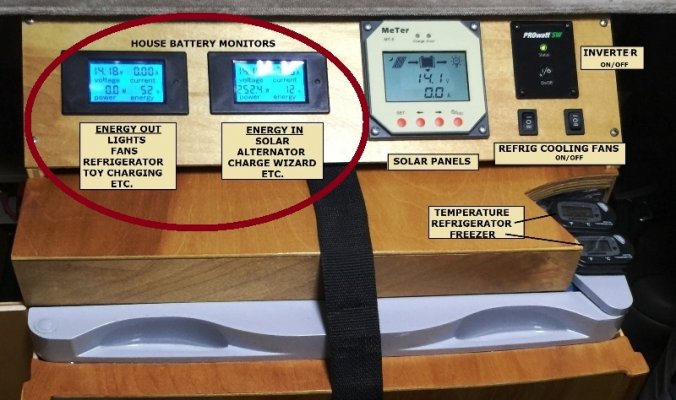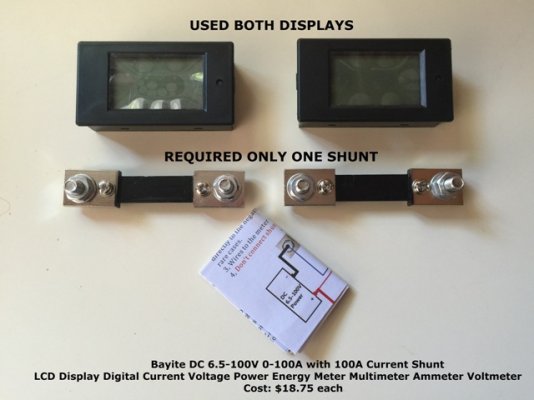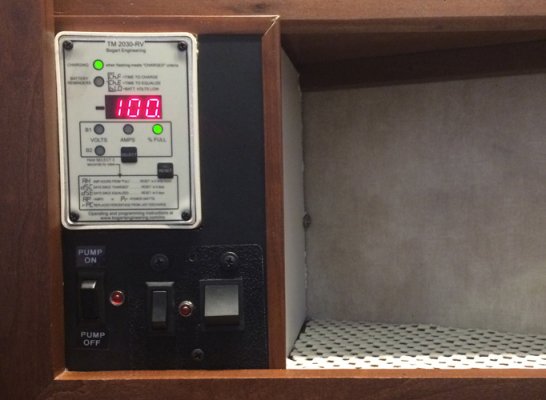I am thinking over the prospect of cutting the cord and going solar. I could use some help. I have a 30' thor wanderer 2006 TT.
1) Is there anyone who can tell me how many watts per day they use for their rig? Air Conditioner or Heater or not... I have seen worksheets, but real life data would seem to be helpful.
2) If you had solar panels charging your batteries, it seems to me that you would no longer need the converter? Worst case you could always hook up a battery charger to shore power.
3) If you no longer needed the converter, it would seem to be a nice spot to put an inverter Has anyone done this successfully, if so how did you wire up the inverter?
Has anyone done this successfully, if so how did you wire up the inverter?
Thanks,
1) Is there anyone who can tell me how many watts per day they use for their rig? Air Conditioner or Heater or not... I have seen worksheets, but real life data would seem to be helpful.
2) If you had solar panels charging your batteries, it seems to me that you would no longer need the converter? Worst case you could always hook up a battery charger to shore power.
3) If you no longer needed the converter, it would seem to be a nice spot to put an inverter
Thanks,



